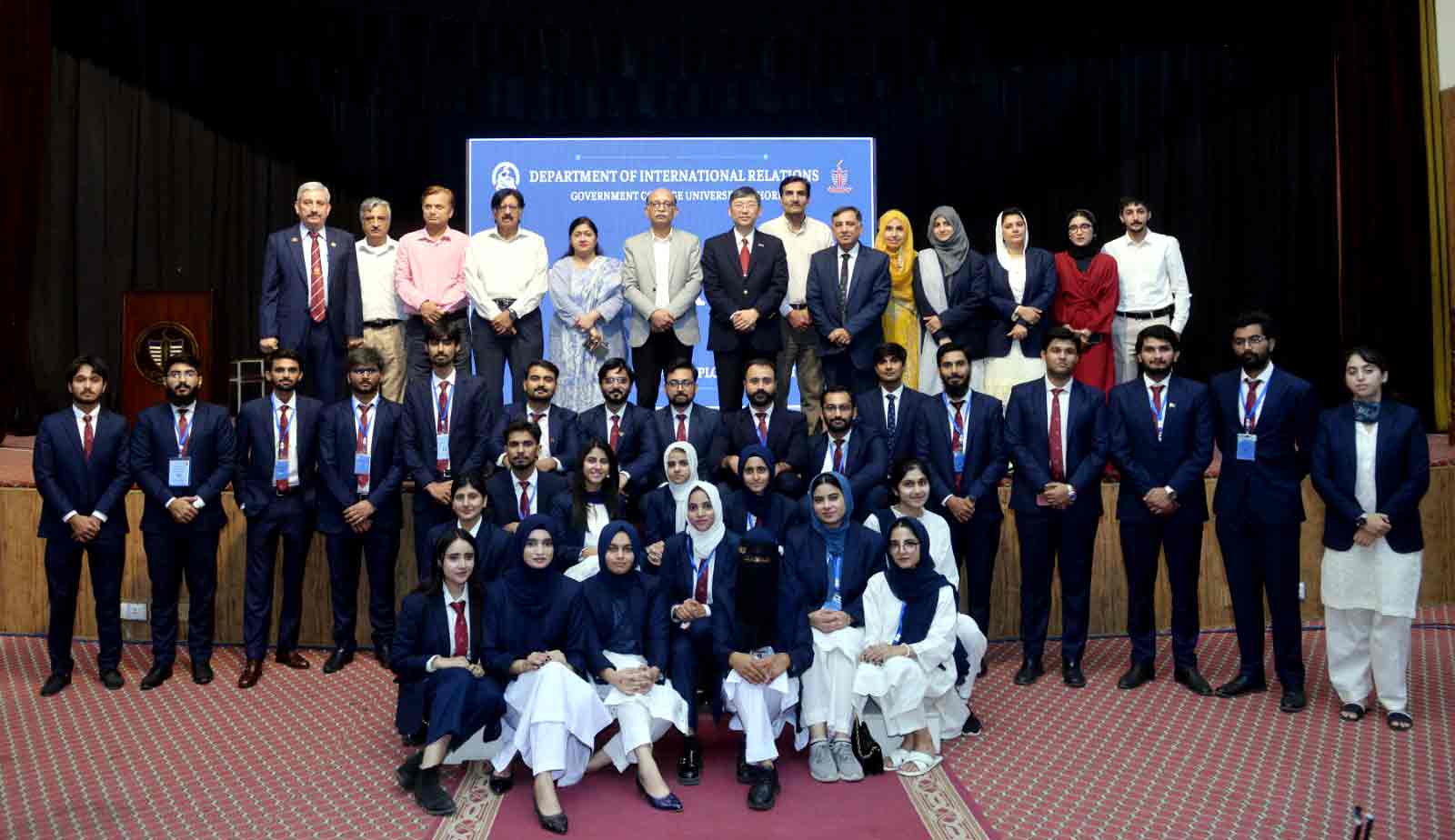
2025-11-05
GCU Lahore Hosts Photo Exhibition and Film Screening Marking 80th Anniversary of Chinese Victory
The Department of International Relations at Government College University (GCU) Lahore on Tuesday organized a special photo exhibition and film screening commemorating the 80th anniversary of the victory of the Chinese People’s War of Resistance Against Japanese Aggression and the restoration of Taiwan. Deputy Consul General of China in Lahore, Mr. Cao Ke, attended as the chief guest, while senior faculty members of the university, including Prof. Dr. Babar Aziz, Dr. Ahmad Raza Khan, and Dr. Fouzia Ghani, were also present.
The Consulate General of the People’s Republic of China in Lahore awarded PKR 2 million in merit- and need-based Chinese Consul General Scholarships to GCU students.
Speaking on the occasion, Deputy Consul General Cao Ke said Pakistan–China friendship remains a firm pillar of regional peace and development. He noted that the second phase of CPEC has begun, opening new opportunities for both nations, and affirmed that China will continue supporting Pakistani students through educational initiatives. Reiterating core principles of China’s foreign policy, he said, China will never dictate its allies and strongly believes in peace and cooperation for the collective good.
Dean Prof. Dr. Babar Aziz said the exhibition effectively highlighted the struggle and resilience of the Chinese people during the period of Japanese aggression.
Speaking about the scholarships, Dr. Ahmad Raza Khan, In-charge, Department of International Relations, added that similar scholarships were awarded last year as well, benefiting many students, and announced plans to establish a departmental welfare fund.
Dr. Fouzia Ghani said these scholarships are strengthening academic cooperation between Pakistan and China while expanding global learning opportunities for students.
The exhibition featured rare historical photographs alongside the screening of three Chinese films, introducing students to the historical context and encouraging informed academic dialogue on the era.